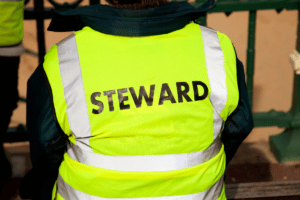When most people think of maritime accidents, injured fishermen, longshoremen, and deckhands may come to mind. However, vessel cooks and stewards, considered seamen by the Jones Act, are also at risk for accidents and injuries if they aren’t provided a safe working environment and the proper safety training.

Common Reasons for Vessel Cooks and Stewards Accidents
Regardless of what the job function is on a vessel, each area needs to be kept safe to ensure the least possible risks for accidents. Often times, employers may overlook the needs of the kitchen staff, which can lead to a host of accidents and injuries. Some of the most common reasons that cooks and stewards succumb to accidents include:
- Malfunctioning galley equipment
- Slippery, unsafe flooring
- Electrical malfunctions
- Lack of safety gear and protective clothing
- Overworking, lethargy
- Unsanitary conditions leading to dangerous exposure to bacteria
- Lifting heavy products
- Repetitive use injuries
In addition to accidents that are caused in the galley, cooks and stewards are also at just as much risk of injuries due to accidents caused in other areas in a vessel. For example, in late 2013, a cook aboard the Jacson 4 vessel was thrown overboard after the ship capsized. Luckily, he was able to survive by finding an air pocket, where he held on for three days until he was rescued. He had several injuries after being rescued, including post traumatic stress disorder.
Steward Injured Aboard a Cruise Ship
In August of 2012, 35-year-old steward Andres Leshaun Staples was killed after falling overboard from the Queen of the West vessel. According to an American Cruise Lines (ACL) spokesperson, Staples fell while he in the machinery area, close to the paddle wheel. His body was found near Longview, Oregon, in the Columbia River.
“The victim did fall off the stern while the vessel was docked. The victim fell 2 to 3 feet to the water from where he was standing,” said Coast Guard spokesperson Lt. Lucas Elder.
Staples lived on the vessel and frequently dove from the deck into 24 feet of water. Another steward and two deck hands saw the accident and surmise that Staples may have hit the sternwheel. The United States Coast Guard investigated the accident. However, Staples wasn’t found until five days after he went overboard.
Steward Injured While on Stairs Aboard a Bulk Carrier
In another fatal incident that occurred in 2011, a steward aboard a registered bulk carrier fell and suffered fatal injuries while carrying bowls down accommodation stairs. Just seconds before the steward fell, the vessel had a fast rolling movement, making the steward lose balance and fall face forward down the stairs. He was rushed to the hospital, unconscious, where he later died from his injuries.
Although investigations found that the steward didn’t follow “The Code of Safe Working Practice for Merchant Seamen,” employer negligence also played a part in the fatal accident. The steward was following the head chef when the accident occurred, and was not told or trained to not carry bowls in both hands while climbing stairs. Although this of course may seem to be common sense in most cases, it’s the employer’s responsibility to ensure each employee is provided safety training and that each employee thoroughly understands how to take safety measures. In addition, close attention should be paid to the vessel’s patterns at all times, especially how it may affect the vessel’s employees as they carry out their daily job functions.
Furthermore, employers must always ensure that all employees know, understand, and abide by “The Code of Safe Working Practices for Merchant Seamen.”
Common Injuries Sustained
Cooks and stewards also face the same risk of severe injuries as any other member of the vessel. The most common types of injuries include:
- Burns and electrical shocks
- Limb injuries
- Slip and fall injuries
- Back injuries
- Overboard injuries, including hypothermia, broken bones, sprains, and in extreme instances, death
Help for Injured Cooks and Stewards
As previously mentioned, most cooks and stewards are considered seamen and are therefore afforded rights under the Jones Act if their injuries are a result of another party’s negligent behavior. In addition to medical care, cooks and stewards may also be eligible for lost wages, pain and suffering compensation, mental anguish, and more. If the accident was fatal, loved ones may be entitled to wrongful death benefits under the Death on High Seas Act. It’s important to mention, however, that while most cooks and stewards are covered under the Jones Act, there are certain requirements in order to be considered a seaman. For more information, refer to our article Who Qualifies Under the Jones Act?
For additional resources on the compensation and benefits, refer to our article Maritime Rights and Compensation.